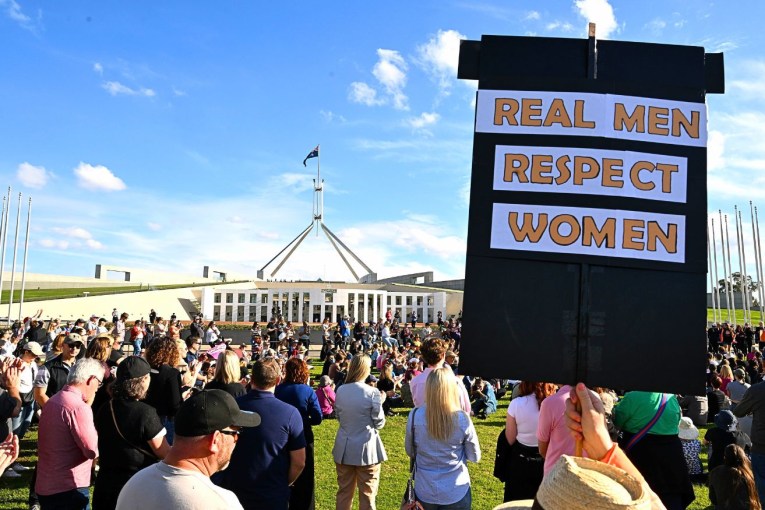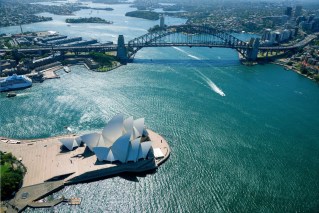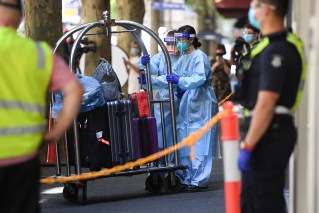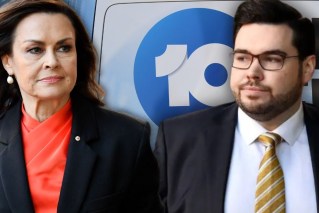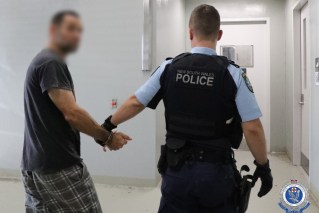‘Denied our rights for too long’: New Indigenous senator Lidia Thorpe on a mission to right wrongs

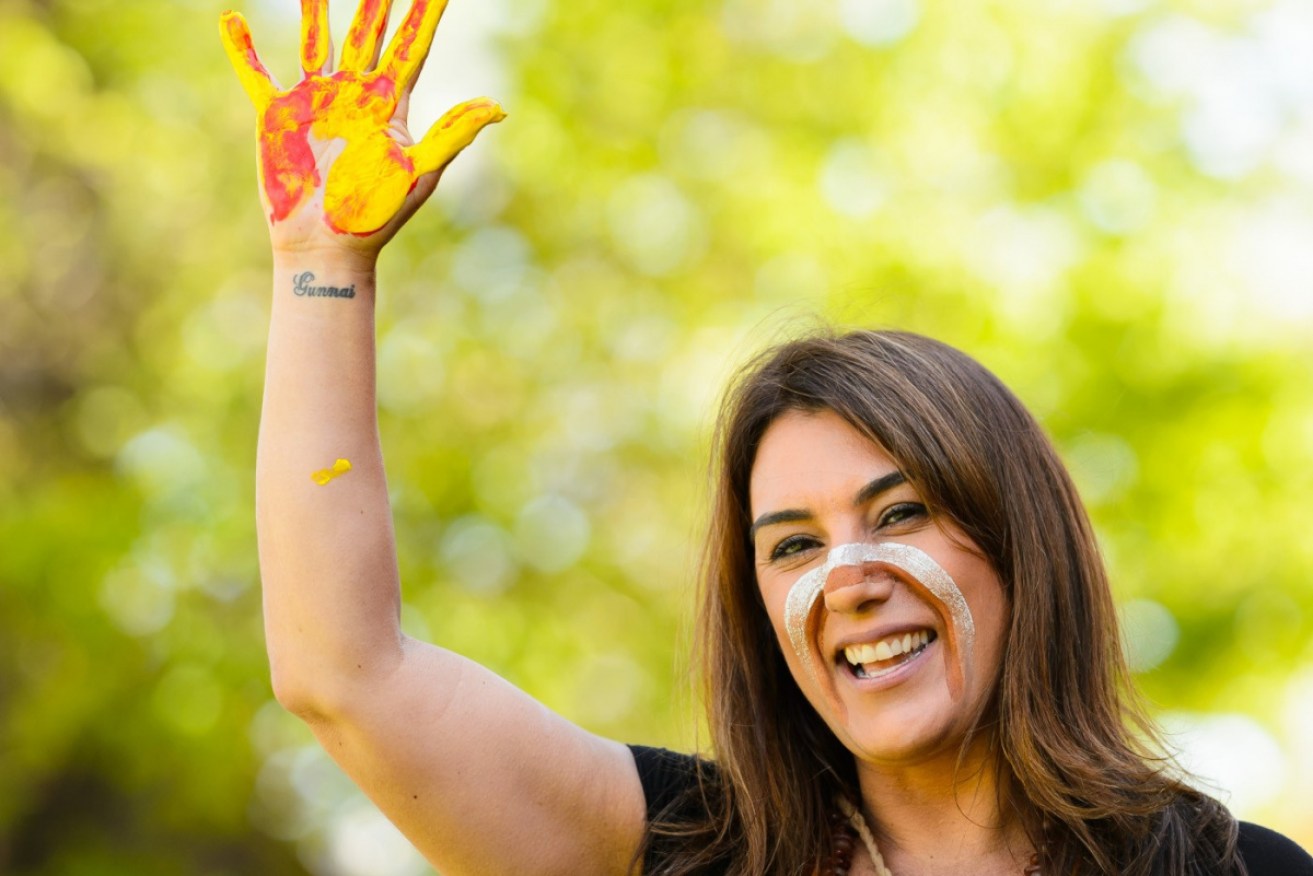
Lidia Thorpe is Victoria's first Indigenous senator. Photo: Facebook
As Victoria’s first-ever Indigenous senator, Lidia Thorpe warned she’s about to “shake things up” in Canberra.
“I’ve protested about it for long enough, and now I’m there, I’ll be continuing the fight in the place that has denied our rights for too long,” the new Greens politician promised.
“For far too long, we haven’t had someone like myself in there to shake things up.”
For Ms Thorpe, selected to fill the spot left by former leader Richard Di Natale’s resignation, causing a stir seems to come naturally.
A political trailblazer, a grassroots activist and a Gunnai-Gunditjmara woman, the former Victorian state MP is making the jump to federal politics – and doesn’t plan to do so quietly.

Thorpe with Greens leader Adam Bandt. Photo: AAP
Speaking to The New Daily on just her third official day as a senator – she hasn’t even had a chance to visit Parliament House or move into her office yet, owing to COVID travel restrictions – she rattled off a long list of priorities, from loudly condemning colleagues’ racism to advocating for an Indigenous treaty.
“We are the most incarcerated people on Earth. I don’t think Closing The Gap measures or programs are cutting through,” she said.
From Collingwood to Canberra
Born in Collingwood’s Housing Commission flats, Lidia Thorpe saw activism from a young age, with her grandmother a founder of the Victorian Aboriginal Health Service.
She left school at 14, saying she didn’t feel “safe” in the education system, facing racism and abuse as one of few Indigenous students.
Becoming a mum at 17, and escaping domestic violence, she went to university with a passion for justice and advocacy.
Her CV is a roll call of the country’s biggest advocacy and human rights groups: Amnesty, Our Watch, NAIDOC, Australian Conservation Foundation, and The Smith Family.
She’s organised massive ‘Invasion Day’ rallies, received death threats over criticisms of Australia Day, spearheaded campaigns to protect the sacred Djab Wurrung birthing trees from development, and negotiated at the COP25 climate conference.
“I’ve sat in front of bulldozers in East Gippsland, protesting the Eastern gas pipeline to save the Nowa Nowa Gorge,” her profile on the Greens’ website proudly proclaims.
Ms Thorpe made history in 2017 as Victorian parliament’s first-ever Indigenous member, later spearheading a historic treaty process. She now takes her seat in federal parliament as her state’s first-ever Indigenous senator.
“We’ve got to be part of the system to change it,” she said.
“It’s 2020 and I’m the first Indigenous senator for Victoria. It’s overdue. It should have happened a long time ago.”
‘A blight on this country’
Ms Thorpe has been named the Greens’ spokesperson for justice, sport, and First Nations.
Addressing Indigenous incarceration rates, and raising the age of criminal responsibility from 10 years, are among her key focuses.
“We had a royal commission into deaths in custody, and not all those recommendations have been implemented,” she said, citing mental health and preventative programs, based on self-determination in Indigenous communities.

Lidia Thorpe says BLM “woke people up”. Photo: Facebook
“They’ve left out the ones that make a difference to our people, and stop our people entering the justice system in the first place.”
“I’ll be continuing the fight I’ve always fought, taking that grassroots voice.”
A recent national campaign to ‘Raise The Age’ of criminal responsibility failed to convince state authorities to increase it from 10 to 14. Ms Thorpe called the current system a “blight on this country”.
“We’re incarcerating our babies when they should be home with their families and communities,” she said.
Ms Thorpe will also work with Greens colleague Mehreen Faruqi on an anti-racism strategy, focusing on a “growing tide of far-right nationalism”.
“Australia hasn’t yet grappled with being the country that raised the Christchurch killer,” Ms Faruqi said.
“We’re going to take the fight to the far-right and their cheerleaders in Parliament and the media to build a proactively anti-racist movement.”
‘A colonial project’
Ms Thorpe plans to be vocal about racism, inside and outside parliament.
“Mehreen and I, two women of colour who have experienced a lot of racism, it’s only fitting we call it out when it raises its ugly head – especially in federal parliament,” she said.
“There’s some really horrible comments made in that place. I’m about creating a nation where we can come together, and celebrate the many cultures in this country.”
Ms Thorpe caused several minor stirs recently, after what she called media “beat-ups”.
In June, on the ABC’s Almost Australian program, she said “I don’t identify as being Australian”, saying it was “a concept that’s been imposed on our people since we’re invaded”.
That same month, she claimed she was the victim of a News Corp setup, after being contacted by a reporter asking if the state of Victoria should change its name.
She claimed the article was presented as though she was advocating the idea off her own bat, not simply replying to a journalist’s request.
“We have to remember we’re all part of a colonial project,” she told The New Daily.
“Since the establishment of the parliament, decisions have not been made in the best interests of Aboriginal people. People have made decisions about us, without us, for too long.”
Ms Thorpe wants to address “systemic racism” in Australia, saying the US Black Lives Matter movement exposed ugly truths here.
“It’s a shame it took a black man being murdered in America for this country to wake up,” she said bluntly.

Lidia Thorpe, at state parliament with Aboriginal elders in 2018, pushing for a treaty process. Photo: AAP
Ms Thorpe believes America’s BLM movement has important parallels with Australia, admitting she sometimes felt scared by police.
“We need to create a fairer system where people can have a fair go, rather than be fearful. We shouldn’t have to fear police or the system,” she said.
“Even as a politician, you can’t help to feel a bit of fear when they’re driving behind you, or walk past in the street. You feel like a target when your community is constantly profiled.”
“That’s not all police, I’m not saying all police are bad, but there is a real problem within justice that we can fix.”
Ms Thorpe will have to wait until October to physically take her seat in the parliament, but is itching to get stuck in.
“My presence will make a few people nervous. I hope it does,” she said.
“I won’t be holding back. We have to change the way we do business in this country. There’s a lot to learn from Aboriginal people.”
